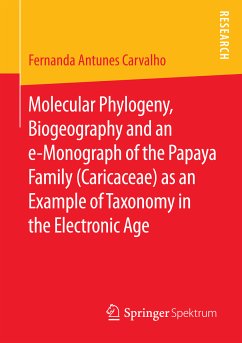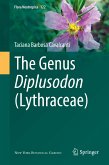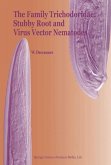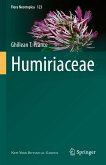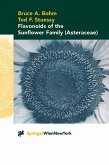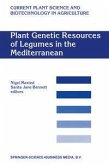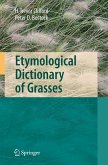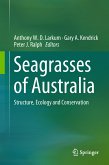Fernanda Antunes Carvalho addresses an issue of key importance to the field of systematics, namely how to foster taxonomic work and the dissemination of scientific knowledge about species by taking full advantage of electronic data and bioinformatics tools. The first part focuses on the development of an electronic monograph of the papaya family (Caricaceae) using existing infrastructures of Information Technology (IT) and bioinformatic tools that together set the stage for a new era of systematics. Based on the plastid and nuclear DNA data, the author inferred historical processes in the second part that may have shaped the evolution of the Caricaceae and explain their current geographic distribution. The last part is dedicated to the evolution of chromosome numbers in the Caricaceae and includes counts for species from three genera (Cylicomorpha, Horovitzia, Jarilla) that have never been investigated before.
Contents
- Taxonomy in the Electronic Age
- Correct Names for Some of the Closest Relatives of Carica Papaya
- A Dated Phylogeny of the Papaya Family
- Chromosome Counts for the Caricaceae Reveal
Target Groups
Researchers and students in the field of plant taxonomy as well as biogeographers
The Author
Dr. Fernanda Antunes Carvalho completed her Ph.D. in Botany at the Ludwig-Maximilians-Universität München, Germany. She is now a post-doc at the University of Gothenburg.
Dieser Download kann aus rechtlichen Gründen nur mit Rechnungsadresse in A, B, BG, CY, CZ, D, DK, EW, E, FIN, F, GR, HR, H, IRL, I, LT, L, LR, M, NL, PL, P, R, S, SLO, SK ausgeliefert werden.

